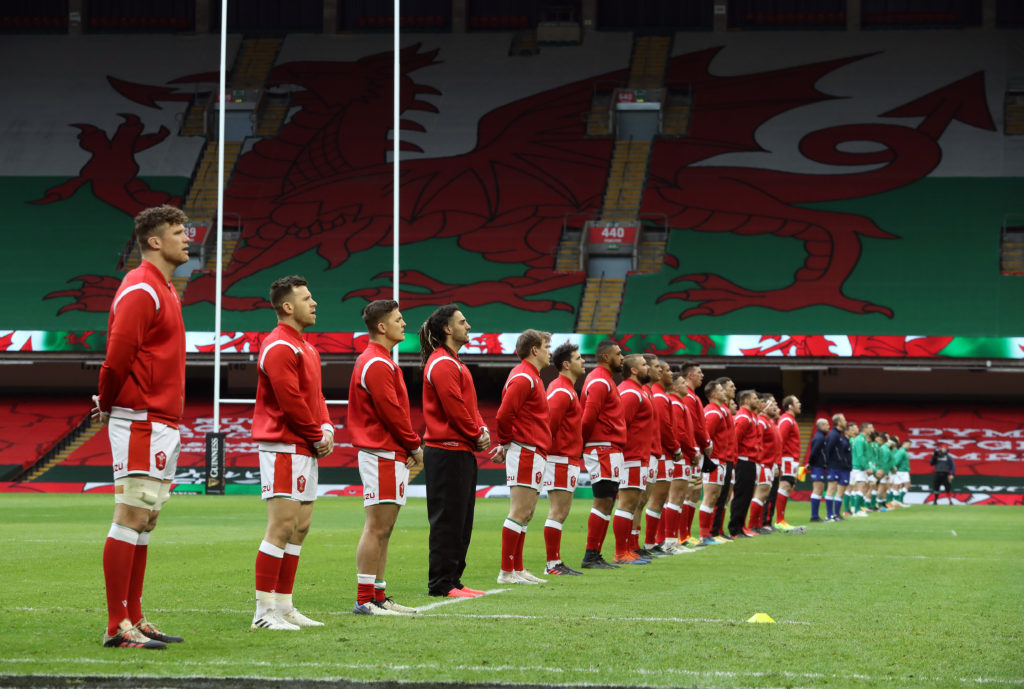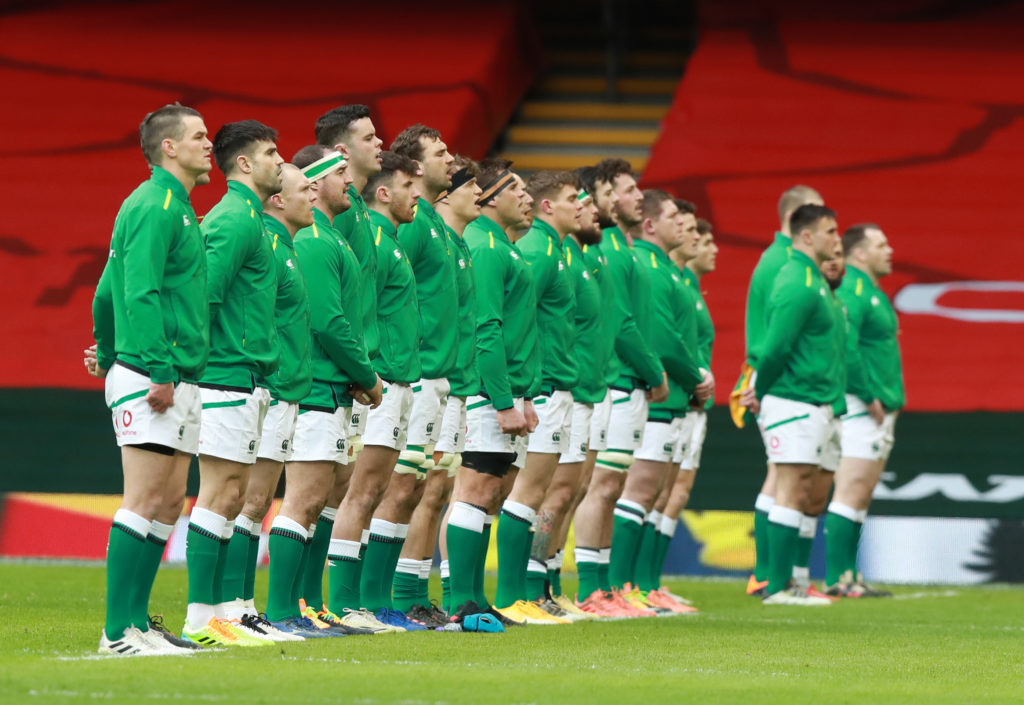THE IRELAND rugby team courted controversy ahead of their Six Nations clash with Wales the Principality Stadium after deciding not to “take the knee” before kick-off.
As the two teams lined up ahead of their Six Nations opener, an “anti-racism” message range out over the Tannoy system at the stadium in Cardiff.
However, during a "moment of reflection" before the game that had been used by players in the Premier League as an opportunity to "take the knee" in support for the Black Lives Matter (BLM) movement, every single Irish player and every single Welsh player remained standing.
Why have sports stars been taking the knee before games?
Ever since the BLM movement erupted into the mainstream following the death of George Floyd at the hands of American police officers in May 2020, sportsmen and women around the world have been "taking the knee" prior to kick off to show support for the fight against racism.
The practice has become especially commonplace in the Premier League and in football across England. In one instance, fans of Millwall football club garnered criticism for booing the action.
Have any other rugby players refused to take the knee before a game?
14 of the 30 players involved in the Six Nations clash between England and Scotland at Twickenham refused to take the knee ahead of kick off.
No players kneeled before Italy v France or Wales v Ireland.
The “moment of reflection” witnessed at Twickenham differed to the kind seen at other grounds as it was also designed to commemorate those who had died during the pandemic and former England international players who had passed away, including ex-captain, John Pullin.
 Neither the Irish nor the Welsh players took the knee prior to kick off
Neither the Irish nor the Welsh players took the knee prior to kick offWhy did the Ireland rugby team refuse to 'take the knee' against Wales?
Some have perceived the gesture of 'kneeling' to be an endorsement of the left-wing values promoted by the Black Lives Matter (BLM) political group, rather than simply of the values of anti-racism. As a result, the practice has become divisive.
England star Billy Vunipola was among those who refused to take the knee during England vs Scotland. He has previously criticised BLM for"burning churches and bibles," during the riots that engulfed the US last year.
"What I saw in terms of that movement was not aligned with what I believe in," Vunipola told The Good, The Bad and The Rugby Podcast.
What has been the response to Ireland refusing ‘take the knee’ against Wales?
The Irish Rugby Football Union (IRFU) has yet to issue a response to the incident.
Scotland coach Gregor Townsend, however, told BBC Scotland he “100%” backs his players choice, adding that there was no discussion on the matter among the squad before the game.
The Scottish Rugby Union also issued a statement: "Scottish Rugby fully supports rugby's ongoing work to end discrimination and racism in our sport.
"This commitment has been expressed with a moment of reflection before every international match since the summer of 2020 and our players are free to demonstrate their support for this important issue in the way they see fit."
England’s Rugby Football Union (RFU) also backed players' freedom on whether or not to take the knee.
 Why did Ireland's players refused to take the knee before their match against Wales?
Why did Ireland's players refused to take the knee before their match against Wales?Speaking exclusively to the Irish Post, an IRFU spokesperson has sought to clarify Ireland’s stance.
They were keen to stress that the IRFU and all of Rugby is united against racism, as part of the Rugby Against Racism campaign, which players have been supporting for many months now.
The IRFU noted that it has been the tradition in rugby to stand for a moment of silence as a mark of respect – and this mark of respect is used for example to thank frontline health workers, to remember those that have passed away, or to mark important historical events.
The added that players are free to stand (as is tradition) or kneel (if they wish to) for the Rugby Against Racism moment, and the choice is entirely up to the players.
“In line with our approach during the Autumn Nations Cup there was no request to take a knee,” they said.
“It is important that players are free to demonstrate their support for this important issue in the way they see fit. It is an entirely personal decision and we respect each players’ right to make that choice.”
“Irish Rugby and our players have been supporting anti-racism messaging for some time,” the IRFU continued.
“Ahead of the resumption of professional rugby, last year, rugby underlined its on-going commitment to offering a game for all, with messaging and support through #RugbyAgainstRacism across the returning Guinness PRO14, the Autumn Nations Cup, the 2020 Six Nations and now, again, before the 2021 Six Nations games.
“This united support against racism ensures that we stand shoulder to shoulder with everyone on this issue. The feedback on these moments has been very positive.”
Were Ireland’s players expected to take the knee against Wales?
There was no official directive from World Rugby or the Six Nations on whether players should “take the knee” as a show of support for BLM.
The only official directive was that there should be a minute's silence to demonstrate opposition to racism.
What do the organisers of the Six Nations Rugby think about Ireland not taking the knee?
Six Nations Rugby, the body that runs the Championship, issued the following statement: “Six Nations Rugby and its participating unions are united in fighting racism.
“Ahead of the Championship a decision was made that we would continue to mark this with players taking a moment of silence and an on-screen message ahead of the national anthems.
“In line with our approach during the Autumn Nations Cup, there was no request to take a knee.
“It is important that players are free to demonstrate their support for this important issue in the way they see fit.
“It is an entirely personal decision and we respect each player’s right to make their choice.”

